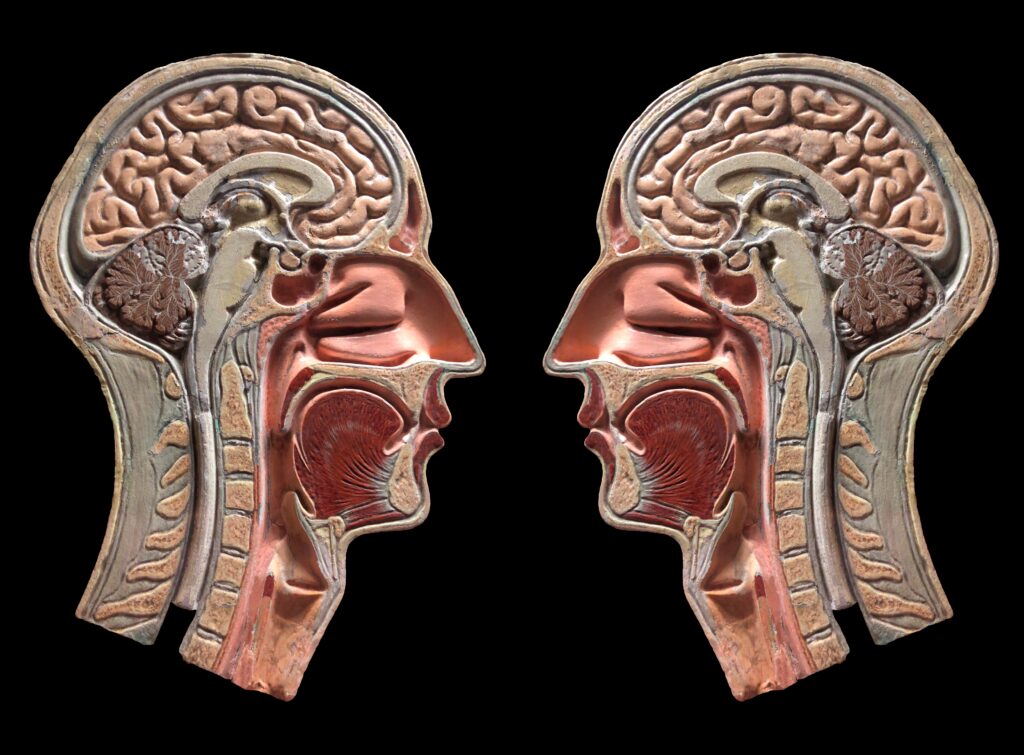John Rogers—Year C Easter 7 through Proper 8
Welcome to the Gospel Reverb podcast. Gospel Reverb is an audio gathering for preachers, teachers, and Bible thrill seekers. Each month, our host, Anthony Mullins, will interview a new guest to gain insights and preaching nuggets mined from select passages of Scripture in that month’s Revised Common Lectionary.
The podcast’s passion is to proclaim and boast in Jesus Christ, the One who reveals the heart of God, Father, Son, and Holy Spirit. And now onto the episode.
Anthony: Hello, friends, and welcome to the latest episode of Gospel Reverb. Gospel Reverb is a podcast devoted to bringing you insights from Scripture, found in the Revised Common Lectionary, and sharing commentary from a Christ-centered and trinitarian view.
I’m your host Anthony Mullins, and it’s my delight to welcome our guest, John Rogers. John is the founder and director of Peterson House in Chapel Hill, North Carolina. Peterson House is a place for people to slow down, sit with Scripture, listen to it and each other, and have it shape their lives. You can find out more information at https://www.petersonhousenc.org, and we’ll place that in the show notes. Prior to starting Peterson House, John spent 22 years in various campus ministry roles, and he earned a Master of Divinity degree from Duke Divinity School, right here in Durham, North Carolina.
John, thanks for being with us and welcome to the podcast. And since this is your first time, we’d like to know a little bit about you, your story, and how you’re participating with the Lord these days.
[00:01:35] John: Thanks, Anthony. It’s good to be here. I think the best summary of who I am is someone that is a pilgrim on the way, trying to be close to the one who gives me more life than I can ever imagine. And I feel like my story speaks to that, a story that started back in 1972 when I was born in Raleigh, North Carolina.
My dad a banker, my mother an insurance agent, and coming from a family; not any clergy. I think you had to go back a good bit on my mother’s side to find someone that was in the Lutheran church out in the Midwest.
But I thought, when I was a kid … we soon moved to Florida where I had a lawn mowing business as a kid. I went to the beach, and I played a lot of golf. And I thought that’s just what I was going to do. I was really good — at the golf part. I think I was really good at the lawn mowing part too. It was, they looked really good. But I was recruited by a college back in North Carolina to come back and play collegiate golf for four years, where I was an all-American, and really was given a lot of opportunities with that.
And my body started to take the toll from that twisting and turning. And it was a time in my life where I was in college, and I had a campus ministry program at a small Methodist college that took an investment in me. And when I figured out pretty quickly after interning at my father’s bank one summer that I probably was not meant for an office job and personal finance. And an intro class in my freshman year also suggested that I probably wanted to find some other things to do.
[00:03:22] Anthony: Do you want to share your grades? Is that what you’re inviting us to do?
[00:03:23] John: Oh, my goodness. Oh, my goodness. Well, it was a C, and I realized that there were other things I probably loved doing more that I might be able to make a career out of. And so, it’s interesting. I know a lot of people find their way to studying religion and philosophy from a heart for it early on. But I found my way to the religion and philosophy program, because I had both a campus pastor and members of that faculty that took an interest in me. And I think that’s all often spoken to me loud and clear in my whole life, that when you take an interest and an investment in other people, of how you can speak truth over people’s life and invitation.
And I graduated. I didn’t go off to the PGA tour, and I went to Duke Divinity School. And my first semester at Duke Div. when I was the RA at the Alpha Phi Alpha fraternity on West campus as a UNC fan my entire life. Thankfully, Duke was not good that year. It was the year that Mike Krzyzewski had some back problems, and he was out.
So, they didn’t burn any benches outside of my dorm that I was responsible for. I started getting night sweats and blurred vision. Some people thought, “Hey, that’s probably just a stress of grad school.” Within a matter of weeks, I was in the hospital and being treated for Hodgkin’s disease and diagnosed with a form of lymphoma in my lymph system. And had that cancer diagnosis and spent it — I don’t know how other people spent their first year in Div. school — I spent it getting chemotherapy and radiation. And so, the good thing about that is, I could claim problems with my short-term memory because of that. So, when I didn’t do well on a polity exam or something, that was why.
But soon I got back on the saddle and finished up there, headed off to my first call at a boys’ prep school in Tennessee. And then was there for 10 years in an academic role and really loved it. I was a coach as well. And then made my way back to North Carolina where I was a campus pastor at the University of North Carolina, with a campus ministry there, and got to do that for 12 years.
I’ve got three kids. Got a daughter that’s down in Auburn, Alabama studying to be a nurse. And she just called me this morning saying that she passed her latest clinical with flying colors. I’m super proud. I was talking to her while I was at my cardiology appointment. So, we got to trade notes. That was helpful.
And I have two little kids as well, a third and fifth grader — a boy and a girl that I’ll, that I get to spend a ton of time with. And then, I would say, your question around like, how am I participating in what the Lord is doing? I feel like that I am good for maybe the day or the week and having a sense of perspective of where the Lord is inviting me to be.
And that sometimes is at a checkout aisle. Sometimes that’s in a setting where I’m facilitating some time in Scripture. But I think when we are disoriented — and my dad just died recently about two weeks ago — and I feel like when we come with a level of honesty and brevity to life that we’re honest about that we are finite creatures depending on God’s generous care and eternal promises, I think this whole concept of lingering and being purposeful and attentive — I just think that’s the way I’m going to live. That’s not an apology for the way I was aerobic in my life before I started this ministry. But I just, I don’t want to live any other way. And I feel like that is the exact posture that we get both of our God in the Hebrew Scripture, but especially in what we see in the incarnation of our God in Jesus that is a Savior that wants to slow down and be with us in that kind of space.
So that’s a little bit about who I am and I’m just glad to be here.
[00:07:21] Anthony: We’re glad to have you here, especially given the circumstances. You and I had talked offline, and I had heard about your father’s passing and we’re deeply sorry for your loss. And you also made the comment that struck me that Scripture is part of the healing process — just coming around the word of God. And that’s a big part of your life and what the Peterson House is about. Why don’t you tell us a little bit more about why you felt compelled to start it and lead this and maybe talk about some of that healing that comes through Scripture.
[00:07:51] John: Yeah, thanks for asking it that way, Anthony. I just think it’s — I think it’s true and through my practice, I’m reaping benefits of the fruit that is being born from purposeful time in Scripture that I just don’t think I’ve ever gotten it in any other way.
Peterson House was started; and it’s funny, the name Peterson, named in memory of Eugene Peterson, really Eugene and Jan and their hospitality of welcoming people to their home and the way that they were in Scripture with other people.
At first it was called Uncovered Word Ministries. That’s our legal name. Our DBA is Peterson House. And it was originally drawn from this image that the Lord gave me. Back in this 2 Kings passage, I think I’m getting it right, where Josiah, one of the couple of good kings that we have, had some folks digging around in the temple. And I often thought that text was, it made more sense that it was after the destruction, and they were coming back, and it was like Ezra, Nehemiah, kind of cleaning things up.
But when I got my history right, I understood that it was in disarray and disrepair at a time when it was not destroyed. And so, this vision that I had, was around how do we uncover Scripture in ways that it feels like it’s been lost? And eventually a friend of mine asked me as we were putting together a pilot, “Is there a person that inspired you, that is inspiring to you, and what they have done in their own ministry in something kind of like what you’re doing?”
And I know not everybody knows who Eugene Peterson is, but he was super important to me. I met him once. He had a real heart for Scripture. And he was a poet. He loved being outdoors. He saw geography really as God’s way of playing out Scripture in a visible way. But the more I worked at this, I realized that my dilemma, and the reason why we created Peterson House, was pretty similar to Eugene Peterson back in the eighties when he was beginning to really enter into Scripture in a creative way, which we called the American vernacular.
Eugene was up in the Baltimore, Maryland suburbs and Bel Air, and he was really struggling that his people there at the church — it was a new church development — that, one, they weren’t that interested in Scripture, and something that was so important to Eugene and really a heart for Scripture that his mother gave him, out in Montana when he was growing up as a kid — and his mom is a Pentecostal preacher — he said, “It seems like it’s not important to them.” That’s a big issue, because Scripture is the single most important indicator for your spiritual health. How do we figure out a way to get it in, to make it more accessible to you? And Eugene figured out a way to do that because he’s a scholar. And he had a gift of language and interpretation.
I’ve not interpreted the entire Bible into whatever language that is familiar to Chapel Hill, North Carolina, but he did. And so, my dilemma here was, I was realizing with the college students that I was working with, and really not just them —you might think stereotypically college students — not really interested in Scripture and wanting to do a lot of other things —and maybe it was just that demographic, but when I was preaching at some local churches, I was realizing more and more that people just had absolutely no clue about Scripture. And I was, I felt like what they were saying to me in those settings where they were shaking my hand and I was leaving church — when they were leaving church — they were commending me for my excitement and enthusiasm for how I was in Scripture and the way that I preached on a Sunday morning. But I realized that it wasn’t just that they didn’t know Habakuk or some other obscure book in the Bible. They just didn’t know any of it. And I started doing some research and realized that this was a major issue.
And my father used to say to me, you can recognize and diagnose a problem and then you’re left with a couple of options. And one is, are you going to do anything, are you capable of doing something about it? And so, I quit my job as a pastor at a big steeple church here in Chapel Hill. And it was a ministry that was going well, because I felt like the Lord was inviting me to do something about it in the same way that really Eugene felt like, hey! And I think it’s appropriate that today we’re reading some Galatians text. Because that’s where it started for Eugene. Like, how do we translate this into a language and really spend time in it? That it really is a story that is not this “antiquitous” story that is so inaccessible and foreign. It’s something that has a lot of life.
And it’s kind of funny — I say to a lot of people — my enthusiasm goes a long way for Scripture to make other people excited about it. But what we do is not that hard. But all we’re doing is really the concierge service of saying we’re going to honor some time, and we’re going to read it a couple of times and we’re going to be in silence together. And then, when we have a conversation, and hear how the Spirit is opening up people’s hearts to this text, we are actually going experience it empowered by the Holy Spirit. And it’s just been so absolutely beautiful and life changing for me. And it’s really a confirmation to me that the Lord is really blessing this response and what we’re doing, not because of what we have in our bank account or what little money we’re able to raise to do this — because we don’t charge anybody anything to do it with us, with our small group ministry.
But the people whose lives are being changed — and that really is really encouraging to me as we lead this ministry. And we’re basically a small group ministry online and in person just trying to honor that unhurried delight. Eugene used to say, we ought to approach Scripture the way that a dog lingers over a bone — that we savor it, that we let it metabolize into who we are. Because, you know what? If we eat it indifferently, we’re sticking our finger down our dog’s throat, trying to dig it out because they’re choking on it. And so, we want to linger. We want to let it seep into us. And I feel like that’s what we’re doing.
[00:14:14] Anthony: God bless you. God bless the ministry of Peterson House. Eugene Peterson, like so many people, he’s a hero of the faith to me. My wife and I were on a boat on Flathead Lake there in Montana, just imagining what it would be like to hang out with him and Jan there. But yeah, what a gift he is. He tells it “slant” as is the title of one of his books. Thinking about the parables, and may we tell it slant as we come to Scripture here today and look at the lectionary text. So, thank you for being with me.
Our first passage of the month is Revelation 22: 12–14, 16–17, and also 20–21. I’ll be reading from the New Revised Standard Version, the updated edition. It is a Revised Common Lectionary passage for the seventh Sunday in Easter, which is June 1.
“See, I am coming soon; my reward is with me, to repay according to everyone’s work. 13 I am the Alpha and the Omega, the First and the Last, the Beginning and the End.” 14 Blessed are those who wash their robes, so that they will have the right to the tree of life and may enter the city by the gates. “It is I, Jesus, who sent my angel to you with this testimony for the churches. I am the root and the descendant of David, the bright morning star.” 17 The Spirit and the bride say, “Come.” And let everyone who hears say, “Come.” And let everyone who is thirsty come. Let anyone who wishes take the water of life as a gift. The one who testifies to these things says, “Surely I am coming soon.” Amen. Come, Lord Jesus! 21 The grace of the Lord Jesus be with all the saints. Amen.
And when we come to Scripture, John, we’re always searching to find out what the text is revealing to us about God. So, from your perspective, your exegetical perspective, what does this text tell us about God?
[00:16:07] John: I love, I always love thinking about the parameters of a text and what it says of kind of where we are in the book. And regardless of sort of our understanding historically of the chronology of the New Testament gospels and epistles, that this, here it is at the end, and this is the last word, and what it says to me about God’s character. God is, we are both saying, kind of this maranatha quote from Corinthians, like, “Come Lord Jesus” — that, we are asking that.
But as I was thinking about this text in preparation for this recording, I was also imagining because I really, there’s so much in this world right now and in my life that I’m like, Lord Jesus, I just need you to come. And that’s not a temporary by the power of the Holy Spirit come. But I need you to come back and restore that which is broken in my life and in this world.
But I’m also hearing a God of the covenant who is the Alpha and the Omega, who is saying, come to me. And there is this uniform openness to that which speaks to God’s character of invitation. And I think sometimes when we think about Revelation, we feel like that it’s just this wild apocalyptic eschatological book.
And if we, and when we do that, it feels like that we paint a different picture, a wild picture of it. But I think at the heart of what we’re getting here at the end of our Scripture is a God that’s saying the same thing that he said. And I love that right before this text, Eden is restored. God is saying, “Come to me. I want to be in fellowship. I want to be in relationship. I want to be with you. And so, I’ve just proven that — I came to you.” Here we have Jesus saying, “I’m sending an angel to speak these things to you.” And we get a word of invitation.
And the last word, Anthony, I think it’s so beautiful. The last word we get is grace. “The grace of the Lord Jesus be with all the saints. Amen.” And so, I think that’s what I’m hearing here.
[00:18:20] Anthony: If you’re preaching this text to the congregation, and of course it’s unique to every congregation, but what else would you convey beyond the fact that Jesus says, “Come,” and gives us the final word of grace.
[00:18:32] John: I think this is king of funny because Eugene Peterson never liked either. He didn’t want to give verses, here and here, so he breaks it down occasionally, like three verses here, like in sections. And he certainly didn’t want to give the sections headers.
But when I look at my Bible, I have a parallel Bible where on one side it’s the NIV, on the other side, it’s the Message. And I love, like, when I look at this, it says on one side, in the NIV, in the sections, the two sections in chapter 22, there are three sections. Eden Restored, John and the Angel. And then lastly, Epilogue, Invitation and Warning. And those feel pretty good and like structurally true. But I love what Eugene, when he is forced — I don’t know if it was him or somebody else in the editing process — to put a title where it says, right before verse 6, Don’t Put it away on the Shelf. I think as my invitation to anyone preaching this text will be reminded that though it is important to exposit God’s word in the pulpit, your words carry very little power if you are not dusting off that Scripture and letting it penetrate your life in your own private chamber.
And I think we often think in transaction. Like I do it as well in teaching and facilitating, but I love that header. Don’t put it away on the shelf, don’t appropriate the text into a programmatic function or a function of the job that you might even be really gifted at. That here is a word that is alive, that is true, that is filled with goodness and grace and promise. That, if this is the Bright and Morning Star, let him be the bright and morning star as you put your sermons together, as you draw from this Scripture to let it encourage those people who have your attention.
[00:20:26] Anthony: I’ve often wondered at John. What would it sound like if we actually took Scripture as the more important word than our own words as preachers and teachers? Huh? If we read Scripture in that way, that this is truly the most important word we’re going to receive today. And I’ve heard pastors say sometimes after stating a pericope, like we just read in Revelation that, “Oh, that taught itself. I should sit down now.” And sometimes I think, yeah, let’s just do that and leave it there. Especially with a book that says, don’t add any words or beware.
John: That’s right. True. That’s true.
Anthony: Let’s transition to our second pericope of the month. It is John 14:8–17. It is a Revised Common Lectionary passage for Pentecost on June 8. John, would you read it for us please?
[00:21:15] John:
Philip said to him, “Lord, show us the Father, and we will be satisfied.” 9 Jesus said to him, “Have I been with you all this time, Philip, and you still do not know me? Whoever has seen me has seen the Father. How can you say, ‘Show us the Father’? 10 Do you not believe that I am in the Father and the Father is in me? The words that I say to you I do not speak on my own, but the Father who dwells in me does his works. 11 Believe me that I am in the Father and the Father is in me, but if you do not, then believe because of the works themselves. 12 Very truly, I tell you, the one who believes in me will also do the works that I do and, in fact, will do greater works than these, because I am going to the Father. 13 I will do whatever you ask in my name, so that the Father may be glorified in the Son. 14 If in my name you ask me for anything, I will do it. 15 “If you love me, you will keep my commandments. 16 And I will ask the Father, and he will give you another Advocate, to be with you forever. 17 This is the Spirit of truth, whom the world cannot receive because it neither sees him nor knows him. You know him because he abides with you, and he will be in you.
[00:22:44] Anthony: So much good there. Jesus said, “Whoever has seen me has seen the Father.” John, this strikes me as significant in how it shapes our theological understanding of God. Tell us more.
[00:22:57] John: Yeah, I love this text, as complicated as it is, and I think John just gets wordy sometimes. But I think it’s culturally appropriate when he was writing. I think all these words say, and what Jesus is saying so succinctly is, if you’re looking at me, you are seeing face to face — prósopon me prósopon — you’re seeing God.
And when I think of that, like, I imagine Philip and the others, the ones that were afraid to even ask the question, oh my gosh, Anthony! They’re still saying I need to see more. What this says about God’s character in Jesus is, “You’re seeing my very character, my life giving, reconciling character in me.” Right? Here we are in John 14 leading up to Jerusalem and to the cross, and still God continues to pour God’s self out even when we want more proof. And so, the theological understanding of this and what it says of God is, I love, that God’s character and what God is wanting to convey is not contingent on my need for more data or proof.
[00:24:21] Anthony: Yeah. Amen. And amen to that. It stands on its own two feet. Truth is truth. It is not enhanced by how many believe it. It is not diminished by who doesn’t see it. And I still, I just — you can hear Jesus’ heart like, “Philip, we just came from the upper room. Did you, were you not paying attention? Do you not see the Father at work when you see me?” And I wonder how often, if we were walking with Jesus, he would say the same to me, like, “John, Anthony, guys, have you not seen it?” And so, we …
[00:24:58] John: Anthony, I think as you’re saying that, what’s so interesting —I didn’t even think about this until right now — is that, like, when I think of Philip, I rarely think of Philip in the gospel of John. I think of Philip and the Ethiopian eunuch, right?
Anthony: Sure.
John: And so, when I hear this promise and this, really this, blessing over Philip and the company of the other disciples that were being told they’re going to do far greater things than their master. And not just their master, not just their rabbi, but the Son of God. They’re going to do far greater things — that here, Philip is in an instrumental way of basically taking the church to North Africa. And so, it just blows my mind that I read this in light of a fuller story that Philip does not have that perspective yet, …
[00:25:43] Anthony: And he will get it. And that leads me to my next question or thought: it’s about the Spirit of Truth.
Yes, I heard you say earlier that, “Jesus, come,” and that is our prayer and our cry, “Lord Jesus, come!” But it’s not as if he’s absent, because he promised these very same disciples, he would be with them to the end of the age, that he was sending another, the Advocate, the Spirit of Truth, who would reveal the truth to them.
So, tell us about the work of this Spirit of Truth and what he is doing to reveal to us the truth of who he is.
[00:26:17] John: Yeah. I think there’s two ways that I think of this. I think there’s this perspective of me understanding as I’m reading Scripture as much as I can of how the Spirit unveils things to me. In my world, it’s often with other people, of trying to broaden how I’m hearing and experiencing something by how the Spirit is really burning in the heart of other people, and paying attention.
But, like, the Spirit is a Spirit of Truth. It’s not a Spirit of hesitation. It’s not a Spirit of, like, “Hey, it’s a little bit of a riddle, like a parable — let’s try to figure it out together. We won’t really figure it out.” But the Spirit, I feel like to me as I hear this, it is a Spirit of Truth. And I wrestle with this because, how much am I able to understand? I’m coming from a reform background and I never want to be so bold as to feel like I’ve narrowed in on all of it. I feel like I’ve had a really good perspective here and everybody else’s heterodox. But the other part … so, one part is how I read Scripture and how I understand this as much as I can.
But Anthony, I think the other part of this too is and I wrote this down, is what I am doing blessed by the Spirit? Like I always feel like I’m about a halfway off. Like I need the Spirit to orient me to the ways I’m really messing things up or I don’t have the confidence, right? I don’t have the confidence to trust what the Spirit has made true, and like, I’m wrestling with whatever is making me anxious or my scale in trying to figure out what’s confirmation that I’m doing the right thing is, I really do wrestle with, like, where do I get the confirmation that the Spirit of Truth is, that what I say I’m being led to do by the Spirit, my Friend, my Advocate is actually blessed by that Spirit. And I don’t know. I think that’s an integrity question.
Anthony: Yes.
John: And I think you know, your question of what is the role the Spirit has in the works we do, which reveal our belief in Jesus as it states here? I think just trusting that the Spirit is true.
Anthony: Yeah. Trust, my brother.
John: I’ll say this really quick. My uncle said to me this weekend, after really just trying to process a lot about my dad’s death, he says, “Don’t complicate it. Be gentle with yourself.” And I think sometimes I try to complicate what actually is the Spirit doing in me and in my life and in the Scripture — how to keep it simple and to trust that the Spirit …
[00:29:11] Anthony: Trust that the Spirit is true — that he, there is this ongoing revelation that he’s leading us into truth. And this is where I think, John, for me, I’m just speaking from my perspective where I have to hold loosely to things — I am where I am today, but it’s not going to be probably where I’ll be in five to 10 years theologically.
And so, this is why, for me, repentance in the way that we see it in the Greek metanoia, the changing of our mind, is so important because one of my prayers before I proclaim the gospel is, “Lord, may I speak truth.” And if I do, rub it in deep into our hearts and souls. But if I say something that’s less than true, may it just dissolve, like vapor be gone and forgotten, because I just know that I’m seeking truth. The Spirit is leading me to truth. I want to trust him, but that doesn’t mean that everything that I say is true. And so, this is why it’s so important to point to Jesus, because he is the embodiment of truth.
John: Yeah.
Anthony: And Lord, forgive us when we’ve been less than true, but thank you for leading us.
John: Yeah.
Anthony: And wooing us by your Spirit. Hallelujah.
Our next pericope of the month is John 16:12–15. It is the Revised Common Lectionary passage for Trinity Sunday on June 15. And it reads,
I still have many things to say to you, but you cannot bear them now. 13 When the Spirit of truth comes, he will guide you into all the truth, for he will not speak on his own but will speak whatever he hears, and he will declare to you the things that are to come. 14 He will glorify me because he will take what is mine and declare it to you. 15 All that the Father has is mine. For this reason I said that he will take what is mine and declare it to you.
Trinity Sunday is another opportunity for proclaimers of the gospel to talk about the Trinity, but not as some dusty old doctrine or a mathematical conundrum, but the reality and relational substance of life. John, let me ask you this. What do you make of the Trinitarian dynamics found in this particular text?
[00:31:29] John: I think especially as I read verse 13, “when the Spirit of Truth comes, he will guide you into all the truth for he will not speak on his own, but will speak whatever he hears.” I hear in this that there is a reliance on the parts of the Trinity with one another.
And I’m in this Sunday school class right now at our church in Durham, North Carolina that is going through pretty much all the movements of Trinitarian theology in the fourth century with the Council of Nicaea and people getting kicked out, coming back in, kicked out, coming back in, one statement here, another statement there, conversations around substance and ousia and hypostasis. And I found myself in that class on Sunday, and I really respect the people that are leading it. But a lot … what has come up a lot in this class is, what is it about the Trinity that is saying to us about who God is?
And when I think about that, and I think about your question, and here we are on Trinity Sunday. It’s … we’re probably best left with leaving it, as it seems quite biblical, but yet it feels like it falls in a maybe category of mystery that we want to be careful not to over-define it.
Anthony: Oh, for sure.
John: And I feel like this — I had somebody in in seminary once described it to me as — this dance. And again, I think we struggle with the oneness and the separateness of the Spirit. But I just love that it seems like here what we’re getting from Jesus and the Gospel of John is like, there’s an interchange in reliance on each part of the Trinity with one another, and however they’re tied together, whatever substance they are of, with one another. And I don’t want to be nailed as a heretic today on this podcast. But I think that’s the beauty of what Jesus is speaking to them and leaving with them, is that “I have a lot more to say to you. The Spirit would unveil that to you. And just be in a place of receiving that.”
[00:33:39] Anthony: Yeah. I appreciate what you said about the beauty of the relationship. And sometimes you hear the Trinity discuss in such a way that it’s like a riddle to be solved instead of a relationship to be enjoyed …
John: Yeah.
Anthony: … to enter into. The fact that in Christ we get to enjoy unfettered relationship with the Father in the communion of the Spirit. It’s a beautiful thing that is, as you said, a mystery.
And thank God that he’s a mystery. Like we should still be in awe of the, just the awesomeness, and the bigness of our God. That’s one of the takeaways that I see here. John, if you’ll allow me, I’d like to make this a bit personal. Would you be willing to share maybe an event, a season in your life, where you experienced the Spirit guiding you into truth, maybe in surprising and unexpected ways? And how did that experience shape your understanding of God?
[00:34:38] John: Yeah. I’ve been, and I mentioned it in my introduction to myself earlier on, I’ve gone through a couple of pretty big medical events in my life. And one recently, gosh, back in September of 2023. I went into a heart cath. lab thinking that they were just going to say, “Nothing needs to be done, head on home” to, “Oh my goodness, this is not good. You need to stay and we’re going to do surgery on Friday.” Having triple bypass heart surgery as a 50-year-old man because of some impact of a radiation field back in my twenties with my Hodgkin’s diagnosis.
And for three days I had to wait for my surgery; from that point of finding that out on a Tuesday, I was having surgery on a Friday. And everything down to having your, all your whole body shaved down so that you’re ready for surgery, all the tests run, all the pulmonary functionality tests run —everything.
Come Friday morning they wheel me down the hall. And I think everybody I knew in my life, and it’s weird … and it’s weird when people look at … I don’t know if you’ve had this happen to you in your life, Anthony, but when people look at you in a way that they think it might be the last time they see you.
Anthony: Oh wow.
John: And I just had to deal with that. My father-in-law, I still remember him walking in to see me the night before. And he came back in my room several times because he couldn’t leave. And I knew what he was doing. And so, what happened on Friday morning when they took me to surgery around five o’clock in the morning, is my pastor … and it’s weird being a pastor and having a pastor is such a gift, but one of our pastors at our church showed up around 5:30 in the pre-op area. And if you’re familiar with pre-op, I mean it’s a lot going on at 5:30 in the morning on a Friday when a lot of surgeries happen. And he walked in and he said, “John, can I pray with you?”
And what I was saying to him is, I said, “David, I keep hearing the word.” And it helped that I was reading a book about God’s loyalty and God’s faithfulness, hesed, that I just found myself repeating that word all morning. And it wasn’t like some, I don’t know some hypnotic effect of just say this word a lot and then you’ll believe it and live into what the word actually means.
I had every reason in that moment to be in full on panic. I was the husband of a wife I deeply adore and love getting to be in life with and in ministry with. I have three kids. I have a ministry that is growing and people that I feel like I’m engaging. And there was a conceivable chance that I was not going to come out of that surgery. No matter how great a candidate I was, no matter how young they thought I was to be having this surgery, how early they caught it. But I felt like that the Holy Spirit in that moment was saying, “John, I’m loyal to you. And my faithfulness is not any less faithful if you do not survive this surgery.”
[00:37:47] Anthony: Amen.
[00:37:48] John: And you know what I think, Anthony. I feel like that, often, whether we call it prosperity gospel or something else, we often have this transactional understanding in the back of our head that, Lord, I’m just serving you. I’m like, I love you. I wake up every day, and why in the world do you want to give me, like, a coronary bypass procedure? I should be protected from things like that. But what I felt in that moment was not the transaction of my God, failing me.
And I know it’s not everybody’s story, but it’s my story. And my pastor said that you’re the only one I’ve ever heard reciting a Hebrew word hesed when they’re going into surgery. And I can imagine it like it was yesterday and it was nothing short of the power of the Holy Spirit, that I think in one place I’m asking the Spirit to give me clarity in the way I read Scripture.
And that’s happened time and time again. But the way that this fruitfulness of wanting to receive the Holy Spirit to get the benefit of it, that’s not what I want, but what God desires for me. And I just can’t explain it. And my mother is in one of our small groups and she said to the group a couple of months later, when I’d come back for the first time, when we’re asking a question around of what do we see and admire in other people and like where we see the Spirit at work in the world.
And to hear my mother say it, and my mother has stage four cancer, and she had to be admitted in the hospital later that day when I was going into surgery because of her own pain that she was managing. And we’re both coming back to this small group and hearing my mother say, “I noticed something about my son that was unexplainable and was only under … could only be understood as one thing, that … the Spirit of God that is often unleashed in a way with a Pentecostal fervor, right? … that the Spirit was unleashed in a way that was more Quaker-like, right — that ‘I’m going to give a hush of peace that will allow you to enter into that surgery regardless of what was going to happen.’”
[00:39:53] Anthony: That’s … thank God for that. First of all, I’m thankful that he brought you through, but I so appreciated what you said before; even if he hadn’t …
John: Yeah.
Anthony: … God is faithful. He’s good — hesed — that faithful love is true regardless. And so often we do get into this mindset — it’s just based on the situation, the circumstances of my life. No, Lord, we are above all people blessed.
John: Yeah.
Anthony: We are so blessed, but I am thankful that he has brought you through to be able to share that for others, including your father-in-law, to see …
John: Yeah.
Anthony: … to see the trust that you had in him —that bears witness to the goodness of God. So, I really appreciate you sharing that with us.
[00:40:42] John: And one last thing I would say, Anthony, is that often, like when I used to think about, especially like on Trinity Sunday, and like we think about the roles of each, and still on the heels of Pentecost, we think of the Spirit as this kind of violent wind.
This fire feels, oh, it’s going to loosen my tongue and I’m going to speak in an unknown language. It feels wild that there, what I’ve noticed about, like the Spirit is, the Spirit can be very gentle and tender, and like our first text when we were thinking about like this invitation of, “Come to Me.”
Anthony: Yes.
John: That there is a place of invitation that the Spirit is, that what the Spirit is doing is gentle and kind.
[00:41:28] Anthony: Yeah. Almost a wooing, right?
John: Yeah.
Anthony: Come and see, taste and see, that the Lord is good. Come with me. Let’s go.
Let’s go on to our next text. It’s Galatians 3:23–29. It is a Revised Common Lectionary passage for Proper 7 in ordinary time, which is June 22. John, read it for us please.
[00:41:48] John:
Now before faith came, we were imprisoned and guarded under the law until faith would be revealed. 24 Therefore the law was our disciplinarian until Christ came, so that we might be reckoned as righteous by faith. 25 But now that faith has come, we are no longer subject to a disciplinarian, 26 for in Christ Jesus you are all children of God through faith. 27 As many of you as were baptized into Christ have clothed yourselves with Christ. 28 There is no longer Jew or Greek; there is no longer slave or free; there is no longer male and female, for all of you are one in Christ Jesus. 29 And if you belong to Christ, then you are Abraham’s offspring, heirs according to the promise.
[00:42:40] Anthony: “… one in Christ Jesus.” What would you want the audience to know about Paul’s emphasis of Christ and faith in him being the new reality over the law?
[00:42:51] John: Yeah. Every time I come to Galatians there’s really only one thing that I feel like is just sounding an alarm throughout the entire correspondence: Christ is enough. When we try to do “Christ, and” to feed … like we kind of get the theology of justification by faith correct. But, yet, we still live within the pattern of wanting to do something on the back end to really justify ourselves.
Anthony: Yeah.
John: And we even kind of write it to say, it’s like the process of sanctification. But I, what I love here is, all these things — the and …, the more … — that is really the background of this correspondence, where it was being sold a bill of goods, that yes, Jesus died for your sins, but there are some other things that you need to do to confirm that, to do more.
And I love the emotion that we get from the Apostle Paul here. And I feel like it is an important … I think it’s an important, strong word of saying, be wary when you ever sense that someone is saying, “You need to do more.” And I … but right before I came on this call today, I kid you not, it was … I don’t know where I was hearing it. It must have been on the radio somewhere, or a podcast. But it, no, it was on NPR, I think, where they were interviewing someone, I think in Japan, about the Unification Church. And like, a key concept with within this, he was saying, … and it’s been a long time since I’ve taught this, so forgive me if I’m getting any of this wrong … But really, basically it was: yeah, there needs to be more.
And I think when I read this text from Paul in Galatians, and when I think about any movement that has ever happened historically in the Church is, what is it about us that we always want to do more? And he’s enough, right? If you belong to Christ then you are a … you don’t need to do something within some ceremony, or some either circumcision, or some kosher ritual, or maybe some pattern of celebration — that you are heirs. Like to this gentile community, “If you’re gentiles that are hearing this, that you’re like” … “oh my gosh, I’m really not in the inside group here.” No. And hearing, oh my goodness, Anthony, hearing this come from a guy like Paul, like someone who is studying under Gamaliel, that if anybody is going to communicate, yeah, you’re not in, you got to do some more stuff. No.
I feel, like, how often in my own ministry, in my life, I run into people that feel like I’m not enough. I need to do something to earn it. I’ve been so bad, or I feel like that I don’t understand it well enough. It’s an intellectual exercise. I’m not ready. To hear someone say, “You right now, you are an heir,” it has a lot of power.
[00:45:55] Anthony: It does. And I wonder, John, and I’ve thought about this a lot … if it’s really our pride, we’re offended to hear that Christ is enough for me. No, I’m going to pull my boots up by the straps and I’m going to work. And J.B. Torrance, the Scottish theologian, often talked about the greatest sin of humanity is turning God’s covenant into a contract.
And anytime we try to add something to what God has done, we’re turning it back into a contract. No, it then it becomes quid pro quo. God, I’ve done this for you; now you’ve got to do this for me. This is how this works. because that’s how contracts work.
No, this is covenant and Christ is all. Oh, and that’s good news. When we let it just seep into the marrow of our bones. That’s such good news.
John: Yeah.
Anthony: What would you have to say about verse 28? What’s your interpretation?
[00:46:46] John: Yeah. I have spent a lot of time with this verse over the last couple of years, and I think there’s so much thought around. If someone wants to know who I am, right? What’s my identity?
And I elevate things and into a place of essential parts of my identity. Like what’s essential, like I think in these conversations, regardless of position on how we understand people’s understanding of their identity, I think there’s just a problem. There’s a uniform problem. And it’s indicting to me, Anthony, because, do I lead, do I honestly lead, with my primary and essential part of my identity is, I belong to him?
And it’s like, I’m not Jew or Greek. I’m not a Carolina fan or a Duke fan, right? I’m not a Northerner or Southerner. I’m not a guy with a certain color skin. I’m male or female. I feel like that we often lead with so many things that are qualities of us, characteristics of us, even like things that we like and are good for our lives, even like the way we lead with things that we like to eat that associate us with a place of culture. Do I lead … verse 28 is really saying, “You are in me.”
Anthony: Yeah.
John: That’s your primary identity. And I think a big part of what we attempt to do as a ministry at Peterson House is like, can we not just be in the text together and immerse ourselves in it to really get what this is saying? So that it’s not like a posturing of, “I need you to know this about me, because that’s going to tell you more about who I am.” And I think it’s one thing if you’re not even a person of faith and you lead with any number of things of who you are. But it is such an indictment of me in the way I think about it, do I lead …? If someone says, “Hey, can you tell me a little bit about yourself, John?”
Anthony: Oh yeah.
John: I am tied inextricably to this person of Jesus. And my primary identity is defined, everything connected to that, and everything is subordinate to it. And I feel like for me when I hear this text read even again today is I’m hearing freedom, that you’re no longer those things that are definable about you, that you think are definable, but you like, you have been set free to be “in me.”
[00:49:31] Anthony: Yeah. And I wonder once again, if it’s pride that gets the best of us, that we want to put our identity in other things, when Christ is all sufficient. He is enough. And what does it look like today to be clothed by him?
And I think you hit the nail on the head. It’s just to identify with that, I am a beloved child of God. Not because of who I am, but because of who he is. Not because I’ve loved well, but because he’s loved well. And that is enough for me today and tomorrow …
[00:50:03] John: and all those other things separate us from one another.
Anthony: That’s right.
John: If God is going to say in God’s character, I’m not separating myself from you in the love of Christ Jesus, why in the world do we keep doing this with the way that we separate ourself from one another?
[00:50:17] Anthony: Amen. Amen.
John: And yeah, I think we just … and unfortunately when we do that … we just don’t get the best of one another.
Anthony: That’s right. And that’s why I’ve held back from telling you I’m a Kentucky Wildcat fan. Because I didn’t want to cause division between brothers, John. Sorry.
[00:50:37] John: Touche. Yeah.
[00:50:40] Anthony: Our final pericope of the month is Galatians 5:1, 13–25. It is a Revised Common Lectionary passage for Proper 8, in ordinary time, which is June 29.
For freedom Christ has set us free. Stand firm, therefore, and do not submit again to a yoke of slavery. For you were called to freedom, brothers and sisters, only do not use your freedom as an opportunity for self-indulgence, but through love become enslaved to one another. 14 For the whole law is summed up in a single commandment, “You shall love your neighbor as yourself.” 15 If, however, you bite and devour one another, take care that you are not consumed by one another. 16 Live by the Spirit, I say, and do not gratify the desires of the flesh. 17 For what the flesh desires is opposed to the Spirit, and what the Spirit desires is opposed to the flesh, for these are opposed to each other, to prevent you from doing what you want. 18 But if you are led by the Spirit, you are not subject to the law. 19 Now the works of the flesh are obvious: sexual immorality, impurity, debauchery, 20 idolatry, sorcery, enmities, strife, jealousy, anger, quarrels, dissensions, factions, 21 envy, drunkenness, carousing, and things like these. I am warning you, as I warned you before: those who do such things will not inherit the kingdom of God. 22 By contrast, the fruit of the Spirit is love, joy, peace, patience, kindness, generosity, faithfulness, 23 gentleness, and self-control. There is no law against such things. 24 And those who belong to Christ have crucified the flesh with its passions and desires. 25 If we live by the Spirit, let us also be guided by the Spirit.
John, for me, freedom is one of those kinds of tricky words, because the definition …. Many attached to that word don’t look like freedom that we see in the Bible. Freedom does not mean we can do whatever we want, as the Scriptures testify, and yet Christ has truly set us free. So, what should Christians make of this Christological freedom?
[00:52:52] John: Yeah, I think when we often think of the word freedom, we feel like we’ve been loosed. We’ve been set free from something that bound us in some way. And the irony here is this Christological understanding of freedom, as I understand it, is still bound, right, but appropriately bound to finding our greatest freedom in tying ourself to our Savior Jesus. And I think we confuse and we kind of have these conversations around agency and around wanting to make sure that my opinions are being heard, that I feel like that that I matter in this world, that I’m not being crushed by someone else’s definition of me or having a stereotype of me, and I want to feel free. I feel like that is like a wonderful place to be. We even think of it within the context of our American history about what freedom means. But when we say we’re followers of Jesus, and we’re talking about freedom, what I hear here from Paul is, and it’s one of the biggest topics for Paul, bar none, right?
Anthony: Yes. Right.
John: And you, and I feel like you got to get it right. Be very careful to not lose yourself so much, to not tie yourself being obedient to the person of Jesus, not the one who will restrict you from who you are meant and created to be. But it is only in him where you will be free. Right?
Anthony: Yes.
John: And I feel like I’m, as I’m saying this, and I’m sitting here in the middle of it as we’re recording it, and I’m imagining when this is going to be. People are trying to figure out what to preach on this summer, like in the heat of summer, where a lot of people aren’t even showing up to church. They’re on vacation; they’re all over the place. It’s what are, how are, we fooling ourselves to think the bill of goods that we’ve bought is something that makes me think that the freedom, total freedom is a good thing, when …
Anthony, I think as a parent of some young kids, I think total freedom can be crushing. And so, I think having a good understanding here of … we need to clarify what are we being freed from … the law, right? Freed from the impact of the first century culture, which would define me within a Greco-Roman context. Free me from the Judaizer controversy that is telling me I needed these other things. I need to be freed from that.
Like freedom does not pull me away from taking Jesus as I need him, but saying I want to be freed from these other things that are like barnacles, right?
Anthony: Yeah.
John: That are like these things under the boat. And I’ve cleaned them from my father-in-law’s boat before. And it stinks. It absolutely stinks, and you don’t want to have to do it, but you’re sitting there with a spackle knife chipping it all away to get to free the boat for it to be able to be used the way it’s intended to be used. It’s like I think about that image of what needs to be cut away for me to be the one who is designed by my God to be freed, to be in that kind of relationship with God in the first place.
[00:56:15] Anthony: Yeah. And under the inspiration of the Spirit. Paul understood the things that you think are free, these desires you have, they actually bring about bondage. And so, this freedom is real freedom. It’s freedom from death and sin, but it’s freedom for God and his good purposes for your life that will ultimately set you free and free indeed. It’s such a big topic. Anything else you’d want to say about it before we move on?
[00:56:42] John: Yeah. I think — and you may be going to another question here, but I may beat you to it — is when I hear this text of this freedom in Christ, this sort of relationship that I get that actually gives birth to a better way of living, like we think about the praxis of our faith. And I love … that’s one of the things that Eugene Peterson said a lot. He actually said, “I think this is livable. I actually think following Jesus is livable. You can do this stuff.”
Anthony: Yeah.
John: And we fool ourselves. And this … I don’t want to say the “we” is other people — I’m included in that. What is it about the works of the flesh, whether we call it impurity, debauchery, or any of the others — like even the good things that I turn into ultimate things, like when we think about Tim Keller and his counterfeit gods is like, why do I keep feeding myself these other things when they don’t satisfy me? When, if I live in communion with my Savior in a way that’s available to me, it produces something that is so dang gratifying.
Anthony: Yeah.
John: And it produces the fruits of the Spirit. Who doesn’t like love, joy, peace, patience, kindness, generosity, faithfulness, gentleness, and self-control. Maybe one there you could do without. I don’t know. But, it’s like, I think these fruits of the Spirit — this is a better way to live, that it’s not driven. And Anthony, I think, as a parent, what is it about the marketing of the things of the world that is fooling my children and others to believe that it will satisfy them?
And I see it all the time. I see it in people in my neighborhood when they’re trying to do any number of things to fix themselves, to heal themselves. And I’m just thinking to myself, there is only one thing that’s going to set you free from, and not just set you free to feel confident about your sort of salvific future, but really set you free to bear fruit in the world in these qualities of the Spirit that is so attractive.
That I just I think that comment of Eugene’s of, “Live this out a while, and you’ll find that it is far more satisfying than the temporary pleasure that any of those other things will give you. What will it take, for you to come over here to live by the Spirit?”
[00:59:05] Anthony: Yeah. And this is why just being converted is so important to have biblical literacy, because when I look at the fruit of the Spirit contained in verse 22, John, that stands in opposition to the world.
John: Yeah.
Anthony: Stands in opposition to a lot of voices clamoring for our attention, for your children’s attention. And this is why we have to keep coming back to Scripture time and time again to be fed by truth. Because the world doesn’t tell us to love your neighbor as yourself. Get yours. Yeah. And if that oppresses your neighbor, so be it. And we dress it up as accomplishment and winning sometimes. So, it’s, man, this is so important that we keep coming back to what Paul is communicating here, that this is what true freedom looks like.
[00:59:49] John: Yeah. With without a doubt. And Anthony, at the very end, it’s not just live by the Spirit. I love that it says, be guided by the Spirit.
[00:59:59] Anthony: The Spirit is with us. Lead us. Lead us, Lord. And it makes me think, and I wanted to get this in as we come to conclusion here, we’ve talked a lot about Eugene Peterson and he wrote a book called The Jesus Way. And I want to share a quote with you. It says, “The way of Jesus cannot be imposed or mapped. It requires an active participation in following Jesus as he leads us,” going back to what you just said, “as he leads us through sometimes strange and unfamiliar territory in circumstances that become clear only in the hesitations and questionings, in the pauses and reflections, when we engage in prayerful conversation with one another and with him, this is what the life is. This is the Christ life.”
John, I want to thank you for being with us.
John: My pleasure.
Anthony: Thank God for you. Thank God for your active participation in his ministry. I also want to thank our team just an outstanding podcast team, Michelle Hartman, Elizabeth Mullins, Reuel Enerio for the work that they do to make this possible. And to all of you as our listening audience.
John, thank you so much, and as is our tradition here on Gospel Reverb, we end with prayer. So, we’d love for you to pray for us.
[01:01:09] John: Lord, we’re grateful for who you are. So much of this message that inspires us in the gospel, Lord, it seems wild. It seems foolish. It seems crazy. It seems upside down.
And for those that are listening to this podcast who are invited either to find creative ways to teach it in the classroom, or to speak and be inspired by the Scripture from the pulpit, Lord, I pray that your Spirit would bless each of the listeners here. Those that are seeking a good word, Lord, that they would hear where you are guiding them by the power of your Holy Spirit to speak words confidently to those who are listening to them that are giving them their attention.
But Lord, I pray that has been true in my own life and I have been thankful for your character in the way that you have done this time and time again. But I pray that the listeners, those that you have entrusted to be those who are proclaiming your good news and doing their best to set the captives free to, to give them a new story to hold onto that really will set them free, that you will begin that freedom, Lord. And the one who is wrestling with Scripture in the first place, in the first step, to even get it to the next step of communicating it to someone else, Lord, would you stir in their hearts, would you remind them of the seeds that you have planted in them, the investment, the covenant, the invitation, Lord, the maranatha that we say, “Come, Lord Jesus,” be with them. Lord, we are confident that you will do far more than we ask or imagine. We pray this in the name of our Savior Jesus. Amen.
Thank you for being a guest of Gospel Reverb. If you like what you heard, give us a high rating, and review us on iTunes, Spotify, or wherever you get your podcast content. Share this episode with a friend. It really does help us get the word out as we are just getting started. Join us next month for a new show and insights from the RCL. Until then, peace be with you!

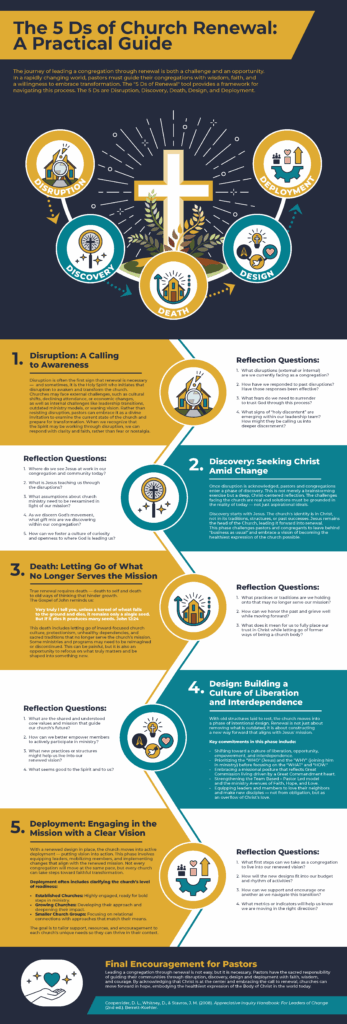
 By Rose Hamrick, CFO
By Rose Hamrick, CFO By Matt Royal, Church Plant Team
By Matt Royal, Church Plant Team
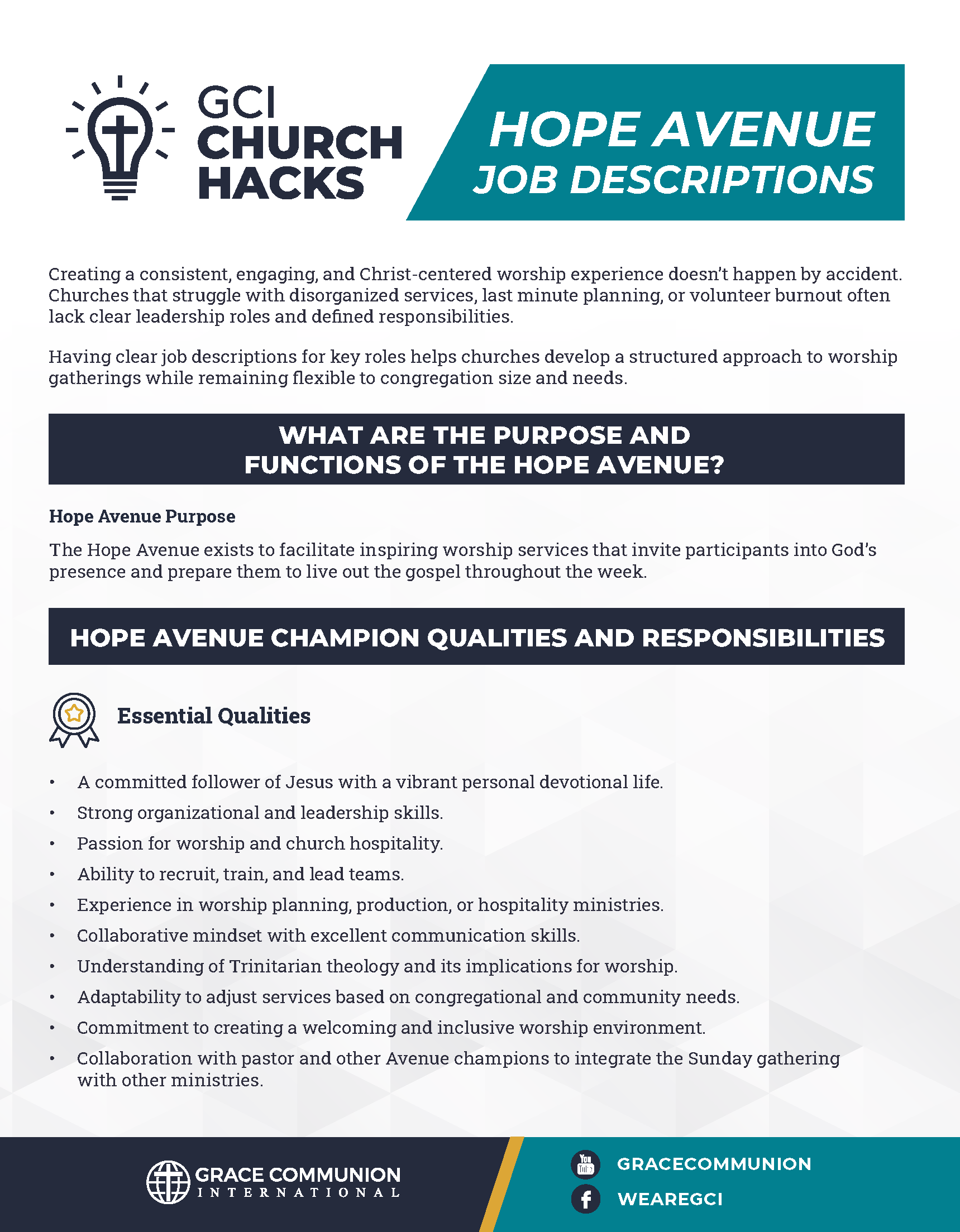
 Selina Sravanthi, Sunday School and Youth Coordinator
Selina Sravanthi, Sunday School and Youth Coordinator
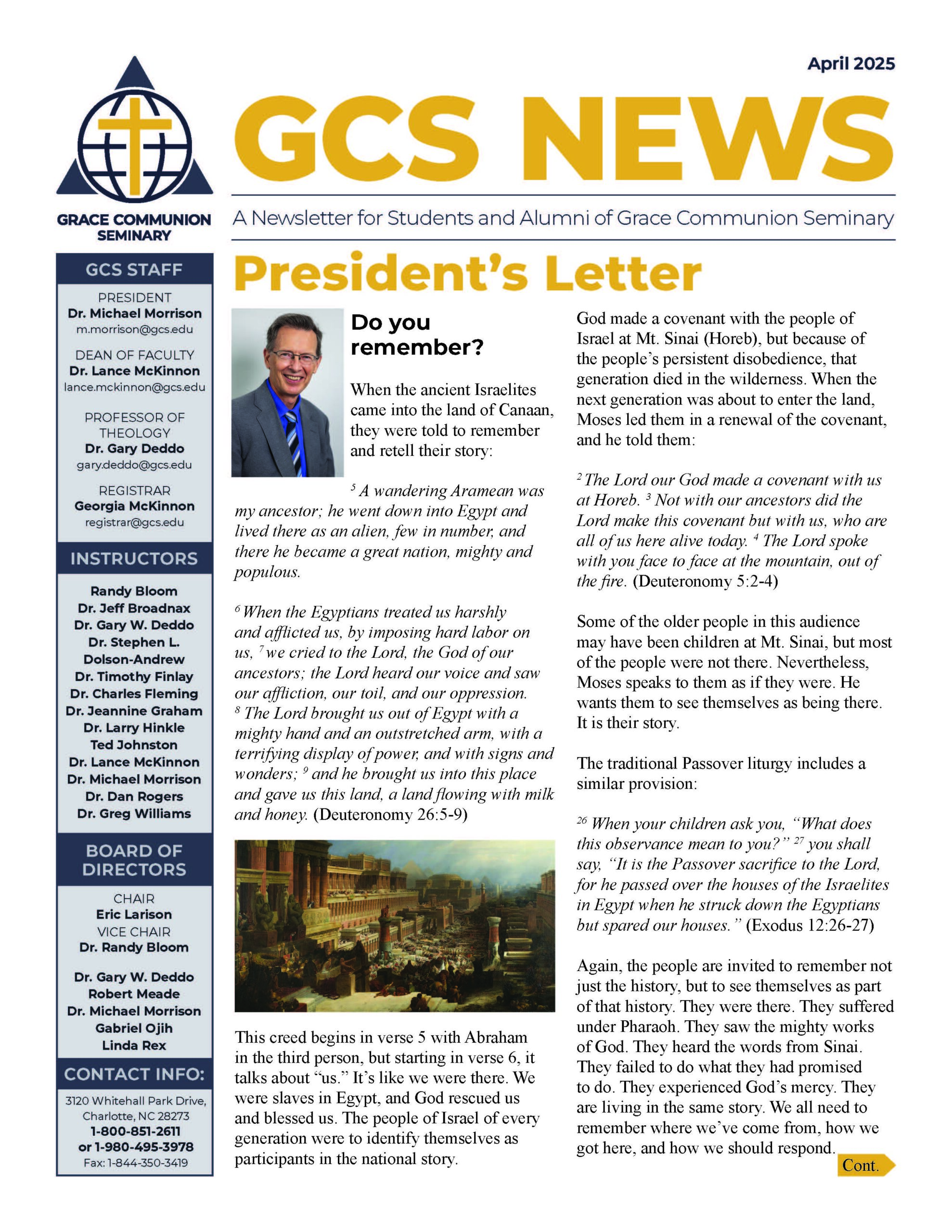
 Michelle Hartman, Communications Director
Michelle Hartman, Communications Director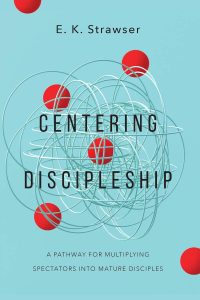
 On this episode of Gospel Reverb, Anthony Mullins, unpacks the June 2025 sermon pericopes with his guest, John Rogers.
On this episode of Gospel Reverb, Anthony Mullins, unpacks the June 2025 sermon pericopes with his guest, John Rogers.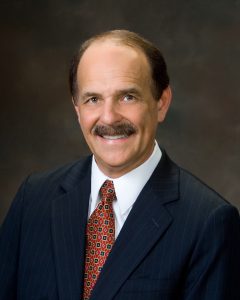 “We don’t get our theology, our heads straight just by mind alone. I think our hearts, and even our actions in the world, help shape our thinking. And we don’t get our hearts right just by attending to our emotions, our inner self. Our thinking shapes that. Our actions shape that. And our hands likewise are shaped by our head and our heart. So, I like to think of all three of these coming humming together to form what is a disciple. And all three of these then are vital in Christian ethics.” — Dennis Hollinger
“We don’t get our theology, our heads straight just by mind alone. I think our hearts, and even our actions in the world, help shape our thinking. And we don’t get our hearts right just by attending to our emotions, our inner self. Our thinking shapes that. Our actions shape that. And our hands likewise are shaped by our head and our heart. So, I like to think of all three of these coming humming together to form what is a disciple. And all three of these then are vital in Christian ethics.” — Dennis Hollinger


